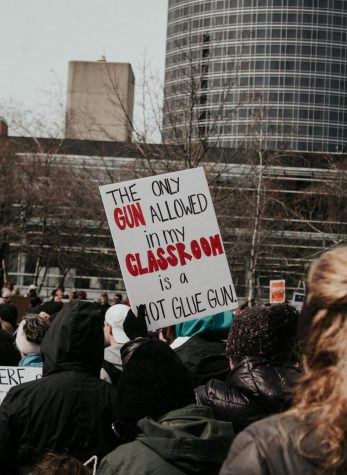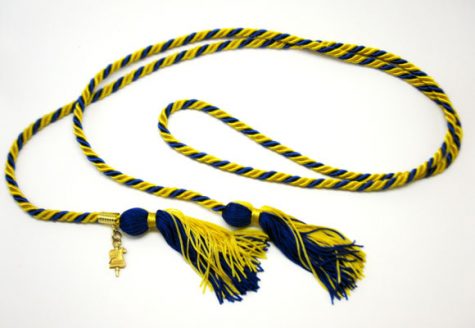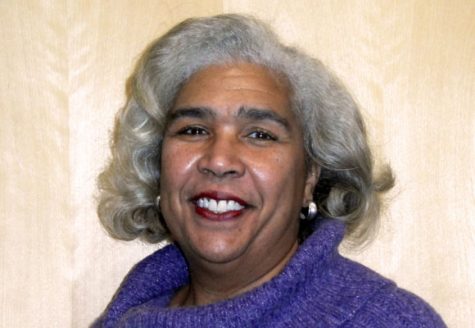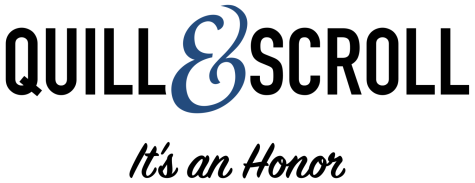THE WEEKLY SCROLL
February 14, 2020
News, tips and advice from Quill and Scroll
The Lede
Two states make progress on student free expression laws
Thursday was a big day in Iowa and Colorado as two bills made progress in each state’s legislature, bills that would add teacher protections to the existing student free expression laws in those states.
The Colorado addendum made it through the House of Representatives with a 59-0 vote Thursday with 36 representatives signing on as co-sponsors. The Senate will next schedule a hearing.

Photo by Kristina V on Unsplash
Iowa’s version of the legislation, Senate File 2138, earned a scheduled hearing in the Education subcommittee of the Iowa Senate. The hearing is set for Tuesday, Feb. 12 at 12:30 p.m. Iowa High School Press Association director Paul Jensen encouraged students and advisers who have time to pop into the state capitol for the hearing.
Of the 14 states that currently have “New Voices” laws providing full First Amendment freedoms for student journalists, only eight have adopted language that provides some protection for their advisers.
Advocates in Colorado hope to update students’ protections by passing a bill that will protect advisers from administrative backlash as well as expand the protection of student journalism to include audio and visual elements. The new language would also lessen the likelihood that students would self-censor for fear of administrative retaliation against teachers.
“The advisers are employees and they are members of the school faculty almost always, but they’re also advocates for students and they are their journalism coaches, if you will,” said Jack Kennedy, the executive director of the Colorado Student Media Association and a member of the Quill and Scroll board. “So they’re sort of caught in between.”
Read more about the bill here.
Other states are considering New Voices laws during their legislative sessions, including Hawaii, Idaho, Indiana, Minnesota, Missouri, Nebraska, New Jersey, New York, Pennsylvania and Virginia. Keep track of all those here.
Also, Q&S Student Advisory Board member Mira Bohannon Kumar produced a podcast about student free expression laws. She spoke with her co-editor of The Little Hawk in Iowa City, a state legislator and a law professor.
Teacher unions stand up against student involvement in lockdown drills

Photo by Joanna Nix on Unsplash
Teachers unions and parent advocacy groups are banding together to call for a restructuring of the active shooter drills that take place in schools all across America. The advocacy groups Everytown For Gun Safety, American Federation of Teachers and the National Education Association are joining together to call for a reassessment of the active shooter drill training held in schools that rely on student involvement.
Ninety-five percent of schools hold some sort of active shooter drill according to the National Center for Education Statistics. The effects of active shooter drills can leave some students scared and in fear for their lives when drills are not expected in the normal drudge of the school day.
Everytown for Gun Safety released a plan for prevention of mass shootings in 2019, including steps that schools should take in preparing their students and staff members if an active shooting should occur. The plan does not include active shooter drills.
Moms Demand Action for Gun Safety in America believe that prevention starts at home. They call for gun safety, prevention and awareness at home so that students who are exposed to guns in their home understand the impact of the weapon.
Other members of the American Federation of Teachers believe teachers should be trained to keep students’ safety at the forefront of their minds, so that students do not have to go through active shooter drills.
Read more here.
It’s An Honor
Nominate students now for Quill and Scroll Honors

It’s never too early to submit your school’s nominations for Quill and Scroll induction! Student memberships are coveted honors that award the top achievers in student journalism. Nominate your sophomores through seniors today!
As the spring semester continues, orders pour through our doors. Complete your orders for graduation cords and pins now to ensure quick fulfillment! We have both member and nonmember awards available.
Chapter of the Year
Quill and Scroll this year will award its first Vanessa Shelton Chapter of the Year honor to a deserving chapter. The application process is simple and free, so there’s no reason not to enter. Here’s a link to the page describing the award and former Quill and Scroll Executive Director Vanessa Shelton. It’s also where you’ll find the entry form to apply before April 1.

Former Q&S Executive Director Vanessa Shelton
The 2020 Vanessa Shelton Chapter of the Year will receive:
- A trophy signifying the winning chapter’s achievement.
- One student from the chapter will be awarded a spot on the Quill and Scroll Student Advisory Board for the coming year.
- Memberships for five eligible staff members —including five pins and honor cords — in Quill and Scroll for qualifying students from the school (A $160 value).
WPM Contest wraps up
Quill and Scroll received more than 2,600 entries from high school journalists in five countries in the 2020 Writing, Photo and Multimedia Contest. Entries were forwarded to judges on Feb. 10, and they’ll be returned to us by mid-March, when we hope to announce all the winners. Ten percent of all entries are guaranteed to earn at least honorable mention, and the students who worked on those entries are then eligible to apply for our Q&S scholarships.
Please submit payments for orders before Feb. 14, if you didn’t do so at the time you entered.
Not too early to apply for Q&S scholarships
The scholarship forms for both students and advisers are open now.
For students, scholarships can be used for tuition, room and board at any college or university. Recipients must major in journalism or a related area of communications. Members and students who earned a national award in our Yearbook Contest or our WPM Contest (above) are eligible to apply.
For advisers, Q&S identifies and rewards experienced journalism teachers and publication advisers who seek the opportunity to upgrade their journalism skills, teaching methodologies and advising techniques.
The scholarship forms for application are open until April 15 (advisers) and May 10 (students).
News Media Evaluation up next!
The News Media Evaluation provides media staffs a one-of-a-kind self-assessment, thorough analysis and rating of your publication(s), with constructive comments and suggestions for improvement from qualified evaluators. The evaluation exercise and feedback are instructive and developmental. The ratings are motivational. High schools and junior high schools may enter their multimedia news operations, newspapers, news magazines and/or online news sites until June 15, 2020. Entries and ratings are returned in September 2020. This service is open to non-member schools as well as member schools.
Entry forms will be available on the site on Feb. 17, 2020
You have four choices for submission:
- COMPREHENSIVE NEWS MULTIMEDIA. Do you have a news magazine, a website and social media associated with both? Submit multiple media — including three issues of a printed publication and URLs for digital and social media — for a full evaluation of your entire news and journalism programs. These critiques include extensive comments from your evaluator. (Fee is $150 for a comprehensive evaluation.)
- COMPREHENSIVE SINGLE NEWS MEDIUM. Submit three issues from 2019-2020 of a single medium (newspaper, news magazine or online news site) for a full evaluation. These critiques include extensive comments from your evaluator. (Fee is $80 per medium.)
- RATINGS ONLY MULTIMEDIA. Submit your multimedia news operation — including three issues of a printed publication and URLs for digital and social media — for a ratings-only evaluation ($80). These critiques include no comments from your evaluator. (Fee is $80.)
- RATINGS ONLY SINGLE NEWS MEDIUM. Submit three issues from 2019-2020 of a single medium (newspaper, news magazine or online news site) for a ratings-only evaluation. These critiques include no comments from your evaluator. (Fee is $55.)
All entries are eligible to be considered for the top rating, the Gallup Award. Read about how to be evaluated here.
What’s Viral?
International film “Parasite” wins big at Academy Awards; visits from Eminem
The South Korean produced film “Parasite” by Bong Joon-Ho walked away with four major Academy Awards, the most of any film last Sunday. “Parasite” was credited with the 2020 Best Picture, Best Foreign Language Film, Best Original Screenplay and Best Director awards. “Parasite” became the first foreign language film ever to win in the Best Picture category.
The Academy Awards remained predictable in recognizing talent; Joaquin Pheonix, Renee Zellweger, Brad Pitt and Laura Dern were all recognized in their respective categories. The biggest surprise of the night, however, came with an unsuspected performance of the 2003 Best Original Song winner, “Lose Yourself” by Eminem. The performance opened with a montage of clips from other winners in the same category, including “Eye of the Tiger” from “Rocky III,” “Don’t You (Forget About Me)” from “The Breakfast Club,” “My Heart Will Go On” from “Titanic,” and many more. The clips were meant to represent the impact that music has on lives.
Eminem’s performance received a standing ovation.
Click here for a full list of winners.
News media literacy and maintaining a free press
A Colorado representative was responsible for passing a new law that instills a media literacy advisory committee within the Colorado Department of Education last year. Lisa Cutter helped to form the committee in 2019 in order to examine the ways in which Colorado elementary and secondary schools are teaching news media literacy.
“News literacy is understanding the difference between fact and opinion, and knowing how to identify credible media sources and use critical thinking skills in evaluating information that is presented as news,” Cutter said.
According to Cutter, an academic study showed that 82% of Colorado middle school students were unable to tell the difference between an advertisement and a real news story. The implementation of the media literacy advisory committee works to identify areas that students are lacking the proper information to identify credible news sources. While young students need to be taught how to identify trustworthy sources, adults can combat fake news sources by identifying where confirmation and cognitive biases and stereotyping steer our media probing towards unreliable sources.
“We can consider the responsibility that we have as citizens in a democracy to act as a watchdog of truth, and we can develop and share strategies for verifying news and information,” Cutter said.
Read the full article here, but in the meantime, check out some of these sources that help fact-check what you find on the web:
Just A Thought
New Q&S Podcast
The value of storytelling in the 21st century
Nichole Shaw sits down with author Michael Zapata to talk about the writing process, the value of storytelling, the importance of listening and the role that journalists can play in our strange new world. Zapata is the author of “The Lost Book of Adana Moreau” and is a former English teacher.
Also, follow our Spotify account!
